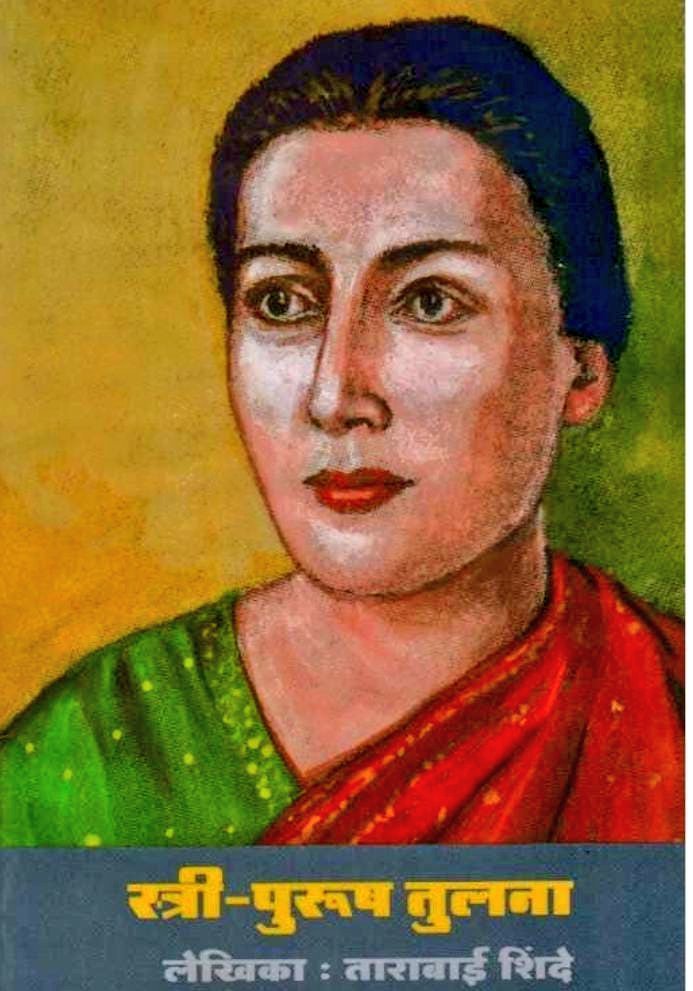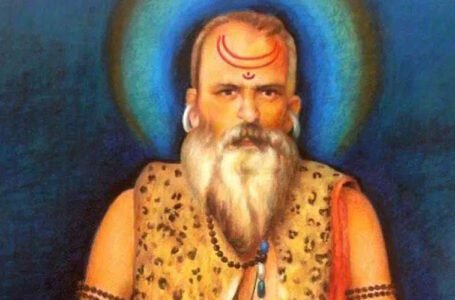Tarabai Shinde: The Pioneer of Indian Feminism and Her Groundbreaking Work ‘Stri Purush Tulana’

Many people talk about feminism in today’s world; do they know what is real feminism? In this modern world with enough of modern equality and facilities, women still suffocate for their rights in some parts of the world. If you ask me did they get freedom from men? No. It is unfortunate to see this condition continue. Still, we are not that much suffering in the past. Here we are about to see about Tarabai Shinde, a woman who successfully spoke about feminism through her literary works.

Personal Life of Tarabai:
Tarabai was born into the Maratha Family in, 1850. She was born in Buldhana, Berar Province (present-day Maharashtra). Her father was Bapuji Hari Shinde. Tarabai also had four brothers. Her father was a head clerk in the office of Deputy Commissioner of Revenues. Tarabai does not get any formal education, although she was taught by her father in her home to learn three languages: Marathi, English and Sanskrit. Her father was an educated man; who also published a book titled, “Hint to the Educated Natives” in 1871.
Although she was educated by her father, he does not fail to do his duty as a father. Tarabai was arranged to get married at a very young age. It was quite common during that period in India to get married at a very young age for girls. But, her father made her daughter sophisticated enough to be in her marriage life. So, she had a very well-behaved household after her marriage. Her husband moved to her parent’s house after marriage and she got her full freedom to do her work.
Tarabai Shinde was an avid reader; she kept herself busy reading the daily newspapers and magazines to know about the happenings in society. She also believed that a woman could have the same value with or without a kid to herself. So she remained childless in her marriage.
Social Work of Tarabai:
Tarabai was one of the associate members of Satyashodhak Samaj. The community was initially founded by Mahatma Jotirao Phule and Savitribai Phule. That was a social community, which was started with the motto of “Equality in Education” mainly for girls and women. They opened many schools around Maharashtra for free education for all.

The Vijayalakshmi Case:
The popular case of Vijayalakshmi turned Tarabai’s life into events. Vijayalakshmi, a young pregnant widow from Surat killed her unborn child (aborted). In those days, killing a child when they were pregnant was a big issue. Likewise, it became a huge topic and was talked about all over India. It was taken in front of the Government and Court; she was sentenced to death and later it was reduced to life imprisonment. It was considered that she got pregnant despite being a widow and it was a big sin. Tarabai Shinde severely opposed this thought and she was very much respectful of the young widows and their lives. She supported that, they can also have a life of their choice after being a young widow; it must not considered as a wrong thing.
Popular works of Tarabai Shinde:
When Vijalakshmi’s case peaked, the Pune Vaibhave newspaper published a series of articles criticizing Vijayalakshmi. This article went on to its extreme and criticized women in general for their unchastity. As a result of response to these idiotic articles, Tarabai Shinde wrote her literary book and magnum opus – “Stri Purush Tulana” (comparison between men and women) in Marathi. This book discussed about women always being in between the “good woman” and the “prostitute” state.
In this book, Tarabai Shinde raised questions to men about, how unjust practices are prevalent in the society that leads to the subjugation of women in India. She told more in detail about the mess that a widow would face. She also questioned the supremacy of men over women. Does she ask why the wife must be undoubtedly obedient towards the husband? At last, she discussed about the widows who were treated unfairly and widow marriage.
The society had already made some stupid norms that must be followed by the women, especially after her husband’s death. She must not wear any ornaments, nor her bhindi and in white saree. She was even considered as an ill omen. She asked a question: Women made themselves beautiful from their childhood by wearing all these things, why in the middle of her husband’s death, she must change that for? At the same time, if a wife dies, the husband can easily remarry and he can live a life of his own. Tarabai was angry about this unequal treatment and challenged the men to take the things that women followed after a husband’s death.

Tarabai also states that every woman and girl must be educated. Because she thinks, education is the only way to change and break social norms and superstitions. If an educated woman taught the girls in villages, they must easily understand the conditions of themselves. This would make their lives to outcome of the dominance and supremacy of a man.
At last, she criticized the editor of the Pune Vaibhav newspaper, as they are being the enemies of women and opposing the good quality changes that are going to come in the future. Back in Indian society, when women talked about sex in public was considered a big taboo. But, in the book, she openly talks about the sexual desires of a young widow and the women who were abandoned by their husbands.
This book was printed at Shri Shivaji Press, Pune in 1882 with 500 copies and priced at nine anans. But it was opposed and made her not to publish the book again. Still, this book was praised by Mahatma Jyotirao Phule and he recommended it to his colleagues. Jyotirao Phule referred to her as “Chiranjivini”. The local newspaper started to mock her book. However, her work was recognized when it was republished in the year, 1975 by S.G. Malshe.

Her other works like Stri Charita, Manorama and Muktamala also discussed for defining gender roles, caste inequality and feminism. When society degrades the women who do prostitution, she is the one who humanises them and understands their plight. She also severely opposed Child marriages, polygamy and forced marriages. She voluntarily advocated for women who were in need. Stri Purush Tulana was considered the first modern Indian feminist text.


